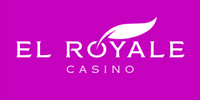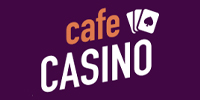Gambling and casinos in Arizona
30 December 2022When it comes to gambling, Arizona is definitely more liberal than states like Alaska and Utah, but far less liberal than states like New Jersey and Nevada. Slightly more conservative than, for example, Ohio, Arizona is trying to balance semi-conservative ethics with the state’s ability to generate additional revenue.
Specifically, these forms of gambling are legal in Arizona:
- Charity
- Tote
- Lottery
- Tribal casinos
Arizona’s charity gambling laws allow sweepstakes, draws, and live bingo. With regard to sweepstakes, any non-profit organization may conduct them, provided that during the draw no one receives any money in the form of profits, except for the organization itself.
When it comes to hosting live bingo, the State of Arizona requires a bona fide non-profit agency to apply to government agencies for a license to host it and approval of the application. Once the application is approved, the organization must meet very specific requirements for running live bingo.
The state itself does not issue charity bingo licenses or levy any taxes, as both of these functions appear to be enshrined in counties, cities, and other municipalities. Thus, gambling is legal in the state of Arizona, but only to the extent that the county or municipality deems it appropriate. The State of Arizona only regulates the maximum amount of income that counties or municipalities can receive in taxes. The tax percentage varies depending on how much profit the non-profit earns from bingo.

Arizona draws are tax-free.
Arizona runs a local lottery which includes participation in national lottery games such as Powerball and Mega Millions. The Arizona Local Lottery is regulated by the Arizona State Lottery Commission.
Arizona offers sweepstakes for horse racing held at Turf Paradise Racetrack in Phoenix, Arizona. Both live racing and streaming are state-approved for this location. Tucson-based Rillito Park Racetrack also hosts live racing. Ariona owns Racecourse, which is in the Prescott Valley, currently only offers broadcasts; live racing has not been held here since 2010. However, it is planned to resume them in 2019.
Anything related to betting on live games or broadcasts is regulated by the Arizona Department of Racing and/or the Department of Racing within the Arizona Department of Gaming.
Tribal casinos in Arizona are numerous and are governed by agreements with the state of Arizona. They are actually listed on the Arizona government website.
There is also a separate list of tribes that are included in the agreements and have the right to open casinos in certain areas, but do not currently have operating facilities. Online Gambling Law in Arizona
In the state of Arizona, no operator is allowed to conduct any form of gambling without a special license and permission from the state, or without the right to open tribal casinos. In the event that someone organizes any unauthorized gambling, they can and probably will be found guilty of the crime of “Gambling Profit.”
What is interesting about the violation of the law under the article “Gambling benefits” is that it does not apply to players, but only to operators. Therefore, people who simply play online will not be considered lawbreakers anyway.
Arizona law enforcement has pursued illegal gambling cafes and other unlicensed establishments in the past, but the focus has been on the operators, who in some cases have been arrested. The players were not arrested or fined for participating in the games.
Gambling is not illegal under the Arizona code of laws, but it is best if you can prove that you are acting as a simple gambler. For this reason, from a player’s point of view, online gambling is just as good as legal casinos in the state of Arizona. Arizona only controls casino operators and any offshore online operators are outside of its jurisdiction.

Live casinos in Arizona
The state of Arizona is unique, if only because a significant percentage of its land belongs to Indian tribes. These are the lands not only of those Indians who lived here before the colonization of America by Europeans. Arizona is also a reservation where other tribes from the eastern United States were resettled.
The state of Arizona is also very friendly to Native Americans, in that any Native American tribe that can claim land ownership or in any way originate from Arizona is allowed to engage in any kind of gambling operation, subject to payment of the necessary fees to the state. The state of Arizona regulates casinos under tribal agreements, but the restrictions contained in them are very
insignificant. Here is the paragraph from the government website:
Under the Arizona Tribal Agreements, no more than 18,158 slot machines are allowed within the state, including Transfer Agreements (tribes included in the agreements may transfer their slot machines to other approved tribes, thus tribes that do not have a casino or are located in remote areas may also earn income from gambling). Currently, there are about 15,000 slot machines in operation. The maximum number of slot machines allowed in any casino is 1,301. There is also a $29 per game wagering limit for most tribes.
Thus, the state of Arizona limits both the number of machines in a casino and the total number of machines allowed within the state. Tribes can also transfer the right to host machines (in terms of number) by any means and arrangements, provided that no individual casino exceeds the maximum allowed number of machines.
The state of Arizona also regulates casinos in several other ways, such as setting a minimum return to player percentage. They are mentioned on the same page and are set in the following sizes:
Minimum theoretical payout percentage of 80 percent for slot machines within the expected play time.
The minimum theoretical payout percentage is 83 percent for video poker games and 75 percent for keno within the expected play time.
Believe it or not, the set minimum return to player percentage in all these cases is higher than the same rates in the state of Nevada (with the exception of keno), since in the state of Nevada the required theoretical minimum return is 75 for all electronic games.
Arizona probably doesn’t want to empower its own lottery commission to license and regulate local casinos, but it’s extremely friendly with the tribes to negotiate mutually acceptable and beneficial deals. Tribes are (by and large) free to do whatever they want when it comes to gambling, and the state of Arizona imposes a cap on the total number of machines and establishments to ensure the state’s interests are not completely subjugated to the gambling industry. The maximum number of theoretically possible casinos is 43.




